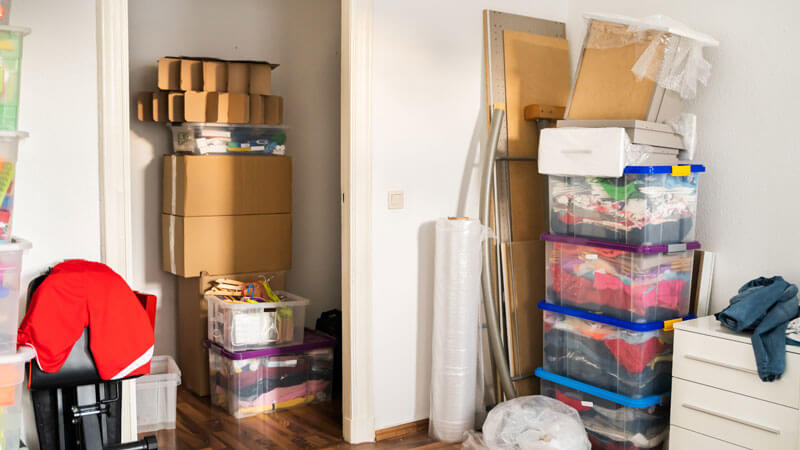Did you know that most American adults own an average of at least 300,000 items? Also, one out of ten Americans have an off-site storage rental for their excess belongings, according to Joshua Becker, who wrote: “21 Surprising Statistics That Reveal How Much Stuff We Actually Own, Becoming Minimalist.”
Over their lifetimes, aging adults will accumulate several items over the years that could now be cluttering the home. Too much stuff in the home can make it hard to move around, which can be especially dangerous for aging adults.
Living in a cluttered space can also make us feel more anxious or depressed. Here are some decluttering tips for aging adults in your loved one’s home, so they feel safer and more comfortable at home.
Declutter One Room at a Time
Decluttering can feel overwhelming if you do not limit yourself to one room at a time. To begin, it might be helpful to declutter the room with the greatest number of possessions. Starting here could help your aging loved one not feel overwhelmed with the process.
For some aging adults, it became ingrained in them not to throw things away that “could” be valuable. You may know the item is not and will not be, but perhaps they are no longer savvy about what sells. Also, many aging adults have inherited many things that they are sentimentally attached to.
For these items, you could try to figure out clever storage ideas. These days between places like The Container Store or Amazon, you can find many ways to creatively store precious items.
Make Piles
Separate the piles into keep, throw away, and donate. If your loved one is having trouble sorting items into these piles, you can include a maybe pile that you can revisit once you separate everything else. This will help your loved one feel in control instead of being pressured in the moment.
Get Rid of Items That Could be Dangerous
If your loved one has limited mobility and needs assistance balancing, they must have a clear pathway for their safety. They will also likely need your help throwing away items they cannot reach. Items such as:
- Expired food items
- Broken furniture
- Old medicine
- Broken dishes, including pots and pans
- Broken appliances
- Rugs you deem a trip hazard
- Unused wires or plugs for electronics
- Any damaged items lying around that you know will never be fixed
Throw Away Duplicate Items
Many people buy duplicate items because they misplaced an item, or maybe the item was on sale, and they like it more than the one they have at home. Whatever the reason, these duplicate items add up in each room. For example:
- Bathroom: Your aging loved one could have many towels, rugs, and toiletries they do not need.
- Office: Notebooks, scissors, pens, stationery – All these items could take up valuable space.
- Kitchen: Over the years, it is likely your aging loved one has collected numerous dishes, coffee mugs, silverware, etc. These duplicated items could generously be donated to a local mission.
- Closet: Many ladies and some men love to have a variety of clothes. There is nothing wrong with that unless many of their clothes are almost exact replicas of each other. This could include accessories as well.
Put Items Where They Belong in the Home
Try to ensure that every item has a place it belongs. Silverware should go in the drawer in the kitchen. Books should be on a bookshelf. A coat should be hung in the coat closet. The list could go on and on. The quickest way for a house to get in disarray is when items are strewn about the house instead of in their rightful places.
We hope these tips will help you to make the home safer and more comfortable for your aging loved one. At Accès le lendemain, it is our goal to help aging adults be able to live out their lives in their homes.
We offer several products that assist with mobility, such as grab bars or wheelchairs, among many other accessibility devices or mobility equipment. If we can ever help you ensure your loved one’s home is safe, please do not hesitate to reach out to your nearest Next Day Access to schedule an in-home consultation.





